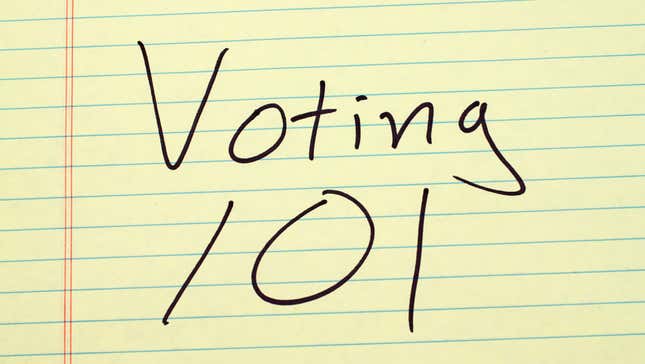
College students headed to the polls in droves during the last presidential election, and with that number only expected to grow in next year’s race, Republican lawmakers have been throwing up roadblocks, especially in swing states.
That’s because college students trend Democratic, according to recent polls, the New York Times reports. And attempts to suppress their vote are especially noticeable in places like Texas, where demographic shifts threaten traditionally red strongholds.
The impact has been particularly stark for black college students, for whom legislative initiatives like more onerous ID and address requirements, or the closing of convenient polling sites have taken a toll.
Jayla Allen, a third-generation student at the historically black Prairie View A&M University in Texas, cautioned members of Congress, during a May hearing on the enforcement of the Voting Rights Act in Texas, that a perilous future lies ahead if voter suppression is not curbed soon. “If the recent rise of discriminatory voting laws is not stopped, I fear that more and more people—and particularly young people of color—will become discouraged, disengaged, and shut out of the democratic process,” Allen said.
Overall, 40.3 percent of 10 million students overall in this nation turned out to vote in the 2018 midterms, more than double the rate seen in 2014, according to the Times.
It’s a voting bloc that could prove to be a real threat to GOP hopes of political domination as college students tend to vote Democrat. And the backlash from threatened Republican strongholds has been real, with increasingly restrictive voting laws under the premise of protecting voter integrity.
As the Times notes:
“The threat to election integrity in Texas is real, and the need to provide additional safeguards is increasing,” the state’s attorney general, Ken Paxton, said last year in announcing one of his office’s periodic crackdowns on illegal voting. But evidence of widespread fraud is nonexistent, and the restrictions fit an increasingly unabashed pattern of Republican politicians’ efforts to discourage voters likely to oppose them.
And things are toughening for student voters throughout the country, according to the Times. Florida outlawed early-voting sites at state universities—unless they have sufficient on-site parking, an amenity many schools don’t have. Wisconsin and North Carolina have toughened voting ID requirements impacting students.
Voter suppression overall is something presidential hopefuls need to be pressed on in upcoming debates, NAACP Legal Defense and Educational Fund associate director-counsel Janai Nelson wrote in Slate.
Something certainly needs to be done, as another Prairie View student noted, per Nelson’s article:
“Us young black people coming in, I don’t feel like we get the same chances. We’re not treated the same. The laws are uneven for us.”

